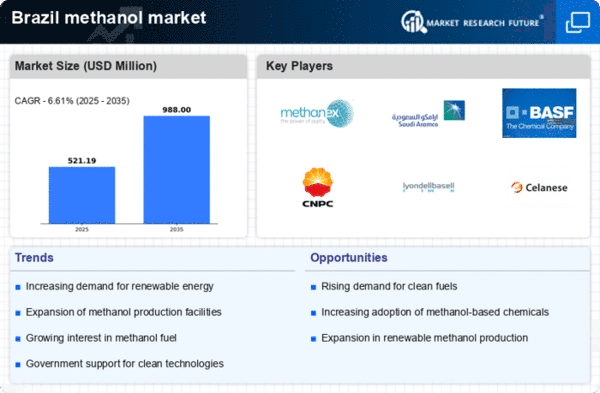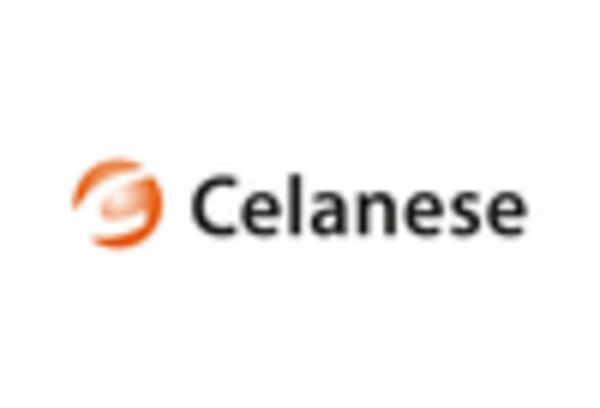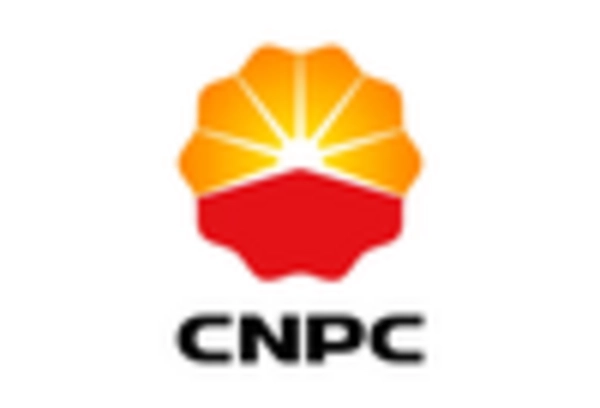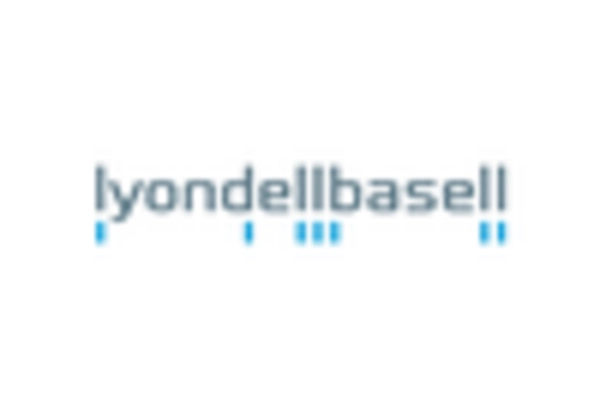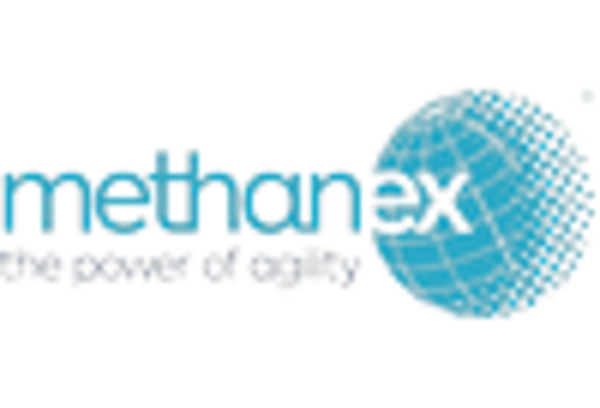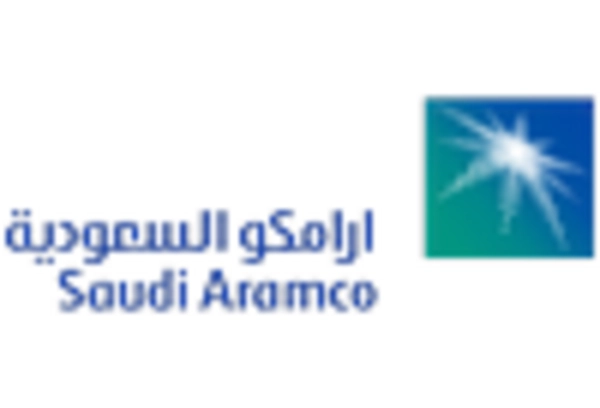The methanol market in Brazil is characterized by a competitive landscape that is increasingly shaped by innovation, sustainability, and strategic partnerships. Key players such as Methanex Corporation (CA), Saudi Methanol Company (SA), and BASF SE (DE) are actively pursuing strategies that enhance their market positioning. Methanex Corporation (CA) focuses on expanding its production capacity and enhancing operational efficiency, which appears to be a response to the growing demand for methanol in various applications, including fuel and chemical production. Meanwhile, Saudi Methanol Company (SA) emphasizes its commitment to sustainability, investing in technologies that reduce carbon emissions, thereby aligning with global environmental standards. BASF SE (DE) is also innovating through digital transformation initiatives, which may streamline operations and improve supply chain management, collectively shaping a competitive environment that prioritizes efficiency and sustainability.The business tactics employed by these companies reflect a concerted effort to localize manufacturing and optimize supply chains. The Brazilian methanol market is moderately fragmented, with several players vying for market share. However, the influence of major companies is substantial, as they leverage their resources to enhance production capabilities and establish strategic alliances. This competitive structure allows for a dynamic interplay between established firms and emerging players, fostering an environment ripe for innovation and growth.
In October Methanex Corporation (CA) announced the launch of a new production facility in Brazil, aimed at increasing its output by 15%. This strategic move is likely to bolster its market share and meet the rising demand for methanol in the region. The facility is expected to utilize advanced technologies that enhance production efficiency while minimizing environmental impact, aligning with the company's sustainability goals. This expansion not only strengthens Methanex's operational footprint but also positions it favorably against competitors.
In September Saudi Methanol Company (SA) entered into a partnership with a local Brazilian firm to develop a methanol-to-olefins (MTO) project. This collaboration is significant as it represents a strategic shift towards value-added products, potentially increasing profitability and market presence. The partnership may also facilitate knowledge transfer and technology sharing, enhancing the competitive edge of both companies in the Brazilian market.
In August BASF SE (DE) unveiled a digital platform designed to optimize its supply chain operations in Brazil. This initiative is indicative of the company's commitment to digital transformation, which could lead to improved efficiency and reduced operational costs. By leveraging data analytics and AI, BASF aims to enhance decision-making processes and respond more effectively to market demands, thereby solidifying its competitive position.
As of November the competitive trends in the methanol market are increasingly defined by digitalization, sustainability, and strategic alliances. Companies are shifting their focus from traditional price-based competition to innovation and technology-driven differentiation. The integration of AI and advanced analytics into operations is likely to enhance supply chain reliability and operational efficiency. Furthermore, strategic alliances are becoming pivotal in shaping the competitive landscape, enabling firms to pool resources and expertise. Looking ahead, the evolution of competitive differentiation will hinge on the ability of companies to innovate and adapt to changing market dynamics, ensuring they remain resilient in an ever-evolving industry.


